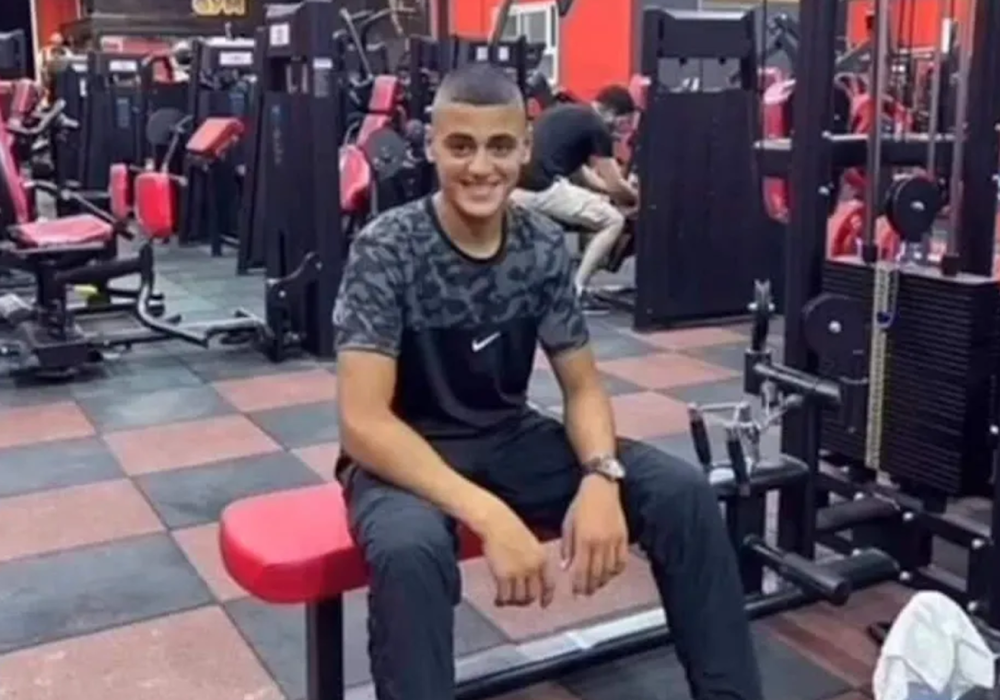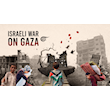Palestinian teen killed by Israeli sniper during shift at carwash
The Israeli police were quick to release a statement 90 minutes after the murder, citing that Israeli Border Police had "neutralized a terrorist."
-

Shadi Shiha in a Anata gym in al-Quds (Israeli media)
Israeli journalist Gideon Levy has written an article in the newspaper Haaretz describing the heart-wrenching murder of a Palestinian boy in Anata killed by Israeli occupation forces (IOF).
An Israeli occupation forces sniper murdered Shadi Shiha, a 16-year-old from Anata, while he worked at his father's carwash. Despite being in a car wash far from the schoolyard, Shadi was "mistakenly" targeted by the sniper as unsubstantiated claims were made that Palestinian children in a neighboring playground threw Molotov cocktails at Israeli border guards.
Clashes in the region erupted a week before Shadi's murder. The Israeli occupation is nearly always present on the far side of the valley, and a jeep occasionally approaches the massive concrete wall where the troops attempt to irritate the children, urging them to throw stones so they can be arrested.
The child's father recalled hearing two shots and recognizing sniper sounds.
Shadi was hit by a single bullet that entered his femoral artery. His cousin rushed him to a nearby hospital in Anata and doctors attempted to stop his bleeding. He later died at a different medical facility from his injury.
As expected, "Israel" released a statement 90 minutes after the murder, citing that Israeli so-called Border Police had "neutralized a terrorist who, with other suspects, threw Molotov cocktails over the security barrier along the route between Anata and Pisgat Ze'ev."
Amer Aruri from the Israeli organization B'Tselem gathered eyewitness testimony confirming that the Molotov cocktails were thrown from the schoolyard, not from the car wash where Shadi worked. Pictures of bloodstains indicate that Shadi fell in the car wash lot.
A week after his death, his family has still not been given his body and Israeli police are imposing harsh conditions on his father Wissam, that Shadi be buried in a different town rather than his hometown of Anata, northeast al-Quds.
They are also asking for a hefty deposit to ensure the funeral has no issues. These ongoing, cruel negotiations reflect a broader pattern of harsh treatment of Palestinians, even in death, says Levy.
Shadi's uncle, a US resident, asked "What would happen if the situation was reversed? If someone from Anata shot and killed someone in Pisgat Ze'ev [settlement], would they also conduct negotiations with the family over the body?"
IOF increasingly killing, injuring children in West Bank since Oct. 7
Israeli use of live fire to murder and wound Palestinian children in the occupied West Bank has grown considerably since the start of the deadly assault on Gaza 10 months ago, a UN report revealed.
In its Humanitarian Situation Update on the West Bank, the UN Office for the Coordination of Humanitarian Affairs (OCHA) announced on Wednesday that 115 Palestinian children have been killed by Israeli live ammunition in the occupied territory since October 7.
In comparison, the number of children killed by Israeli live fire in the West Bank in the preceding ten months up to October stood at 39, according to the report, which means that the killings since October 7 have tripled.
Furthermore, the number of Palestinian children injured by Israeli live fire in the occupied territories doubled throughout the reporting period, with 1,411 children wounded by bullets since October 7, up from 615 in the previous ten months.
The OCHA has also documented 1,250 Israeli settlers' attacks on Palestinians since October, including around 120 settler assaults that resulted in Palestinian fatalities and injuries.
According to a UN investigation, on August 12, Israeli settlers armed with knives abducted two 15-year-old Palestinian shepherds and dragged them into a recently formed Israeli outpost colony near Khallet an-Nahla, where they "assaulted the boys, broke their legs, and urinated on them" before driving them to an open area where they abandoned them.

 4 Min Read
4 Min Read











